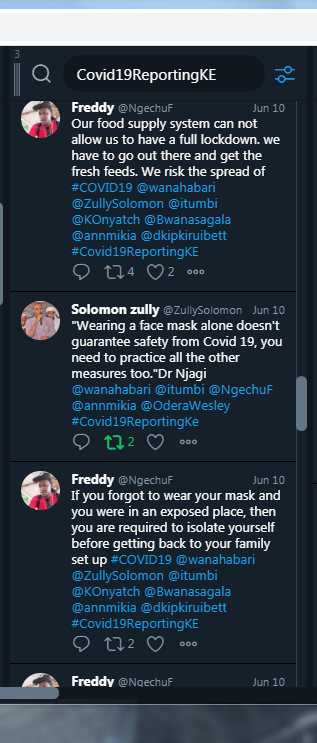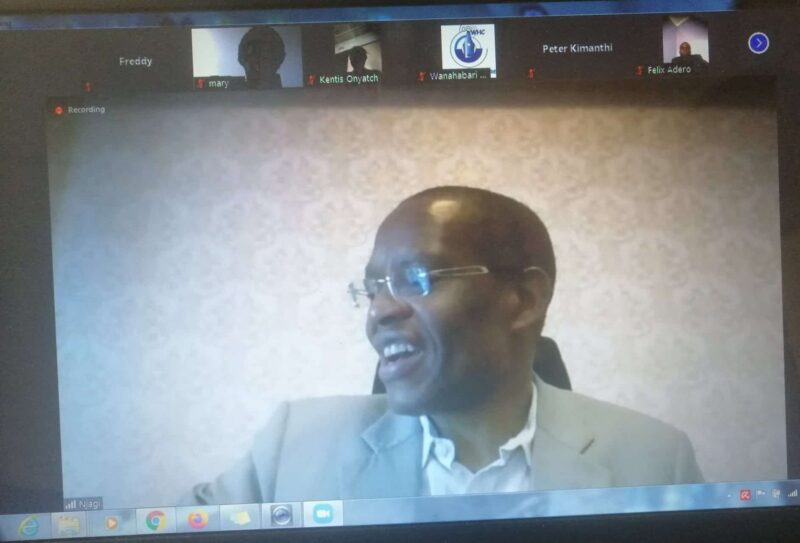Kenyan journalists report that some families in rural areas of Kenya share masks, not realizing that one member of the family could then infect all the others with COVID-19. Others believe conspiracy theories, including that the virus is all a myth to inflate government funds.
To address the gaps in information around the pandemic, Wanahabari Centre, a local media development organization in Nairobi and grantee of Internews’ Rapid Response Fund, set out to empower local journalists through webinars, mentorship, and travel grants.
Six radio journalists from community stations around the country participated, learning simple language to educate listeners and advance their coverage beyond a recitation of cases and deaths.
A total of 26 radio features and additional live shows on COVID-19 resulted, in just over one month.
Using Common Language to Stop the Spread

Dr. Ephantus Njagi, a virologist and lecturer at Nairobi University, used the webinars with journalists to showcase how terms such as “social distancing” and “quarantine” were not adequately meaningful to ordinary Kenyans. Njagi explained the terms and gave examples of how to simplify them. He also outlined prescribed prevention measures and discussed how the journalists should communicate this information to their listeners, who may be reluctant to adapt to disruptive precautions.
Felix Adero, a journalist from Radio Namlolwe, visited people living in informal settlements to better understand the information they needed. “It was heartbreaking to learn that people in the areas of Nyalenda, Kondele, Manyatta amongst other informal settlements were not receiving proper information on matters of COVID-19,” he said.
After the webinars, Adero produced a program on the problem of mask sharing.
COVID-19 Symptoms Manifest Differently
Dr. Njagi encouraged the journalists to communicate to their audiences that some people may be infected but not have any symptoms of COVID-19 and can infect others unknowingly. He also insisted on the need for journalists to educate the public that older people and those with pre-existing conditions are more vulnerable to severe symptoms or death so should maintain stricter prevention measures.
One of the journalists, Amina Fakii from Kwale County in the coast region interviewed elderly people with pre-existing health conditions such as diabetes to find out if they were aware of the risks of getting COVID-19. While some had heard the information on the radio, others were surprised to learn they were more susceptible.
Alleviating Stigma
In Kenya, the stigma around COVID-19 means that few people openly admit they have contracted the virus. In the fourth and final webinar, Dr. Danson Macharia shared his experience with the virus as a patient and a doctor. He said that the protective equipment that health workers have to wear, the isolation of patients, and the way bodies are handled after death contributes to the stigma, so it’s important to get these issues out in the open and for survivors to share their personal experiences.
The pandemic crisis is also an information crisis, and journalists are the first responders. In an emergency, information saves lives. Hear from more Rapid Response Fund grantees, as they grapple to stay operational and report on the crisis.
(Banner photo: Dr. Ephantus Njagi speaking during a webinar on COVID-19 terminology and symptoms)
